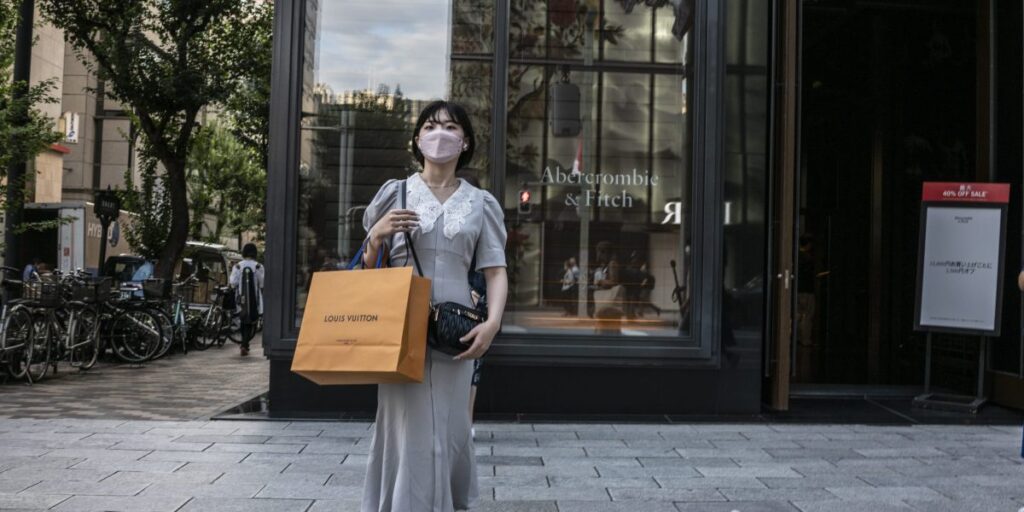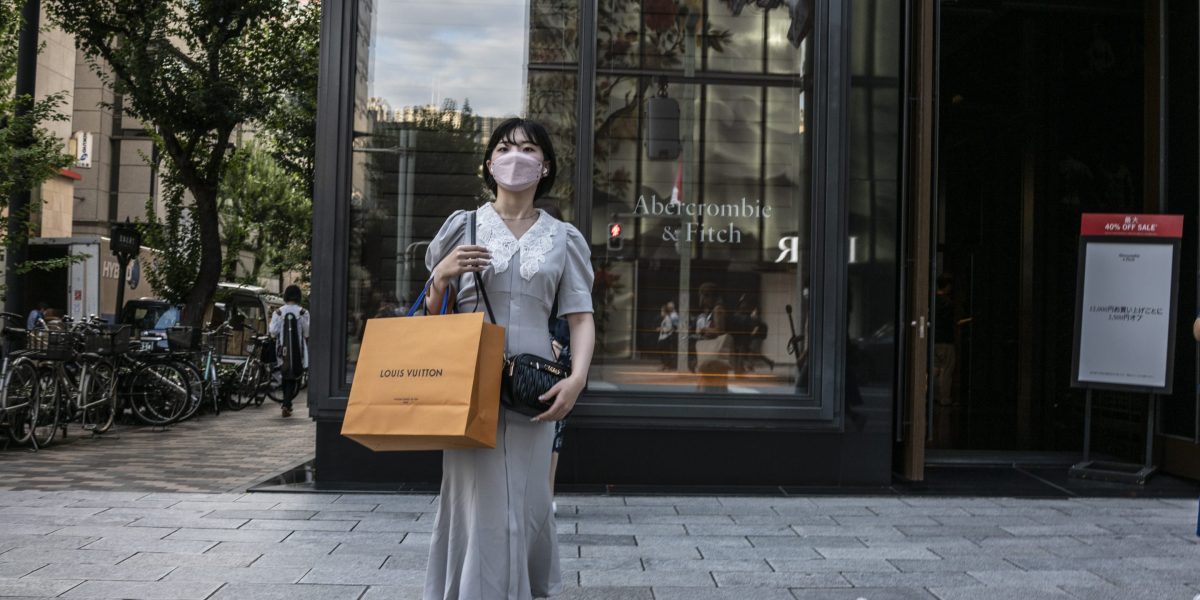Luxury pilgrimages bring tourists to Japan to scoop up high-end goods. Brands like LVMH would rather they not
Japan’s weak yen means travelers can get hefty discounts on Louis Vuitton handbags and TAG Heuer watches.


For some Chinese shoppers, the 16,700 yuan, or $2,300, price tag of a Louis Vuitton Speedy Bandouliere 20 handbag is too much. It’s one reason why more and more are traveling to Japan—where the price for the same bag can be more than $400 lower.
Tourists, many of them from China, can thank the weak Japanese yen for the built-in discounts on luxury goods—which are driving surges of visitors to the country for the primary purpose of shopping.
Over 3 million visitors flocked to Japan in May, according to the Japan National Tourism Organization, and 1.3 million Chinese mainlanders visited in the first quarter of this year—a year-over-year increase of over 800%. The influx coincides with the yen slipping to a 34-year low in April. Despite Japan’s efforts to hike interest rates, its currency still languishes behind the U.S. dollar, effectively discounting many goods for those willing to make the trip. A TAG Heuer watch in New York selling for $6,450 in New York can be found for closer to $5,000 in Tokyo—including the 10% duty-free discount for American travelers.
As a result, many visitors coming to Japan are putting shopping sprees at the top of their itineraries.
“Shopping, shopping, shopping,” one tourist from Indonesia told Reuters. “High-end brands are cheap here. We are going to buy Dior but we are going to Chanel first.”
Japan’s retail sales grew 3% in May from the year before, according to government data, compared to the expected 2%. Its luxury market is worth $41.1 billion, according to consumer trend platform Euromonitor, and is forecasted to reach $42.3 billion in two years.
Despite a global luxury slowdown, companies like LVMH have seen massive growth in their Japanese markets. Japan was the fastest-growing country for the luxury conglomerate’s 75 brands, which include Louis Vuitton and Dior. LVMH sales in Japan grew 31% across the first nine months of 2023. Stores from brands Celine, Dior, Cartier, and Hermès have cropped up in massive Tokyo shopping developments just this year.
Even luxury shoppers love a discount
But despite the rapid growth of the Japanese market, luxury brands have mixed feelings about the prospect of shoppers on the hunt for good deals. LVMH CFO Jean-Jacques Guiony warned that Japan’s appealing shopping climate has disincentivized Asian customers from buying luxury goods in their home countries, as many of them instead wait for their impending trip to Japan to spend big. It means more traffic—but crunched profits.
“We are happy with the growth generated in Japan, but it comes at a notable cost from a profit and margin perspective,” Guiony said during the company’s earnings call last month.
Business in China “is slightly down because the business is taking place elsewhere and particularly in Japan. In Japan, traffic is going through the roof,” he said.
“The situation in Japan…is not something we had factored in and forecasted, to be frank,” he added, describing the business shift from Asia to Japan as “extremely violent.”
A spokesperson for LVMH declined to comment beyond the CFO’s statements.
French spirits company Remy Cointreau experienced a similar conundrum. While its sales across Asia were down this quarter, sales in Japan were strong and “boosted by tourism and partially also the weak yen,” CFO Luca Marotta said last week, though he admitted Japan’s growth came at the expense of other parts of the continent.
Sales in “Hong Kong, Taiwan and Macau were particularly weak, impacted by… tourist preference for Japan over Hong Kong,” he said in the company’s July 24 earnings call.
The company did not respond to Fortune’s request for further comment.
Luxury companies are in a precarious position. It’s difficult for brands to increase prices on products because the yen is so volatile. Consumer sensitivity to major price hikes in recent years has dissuaded companies from raising costs even more.
Meanwhile, Japanese retailers continue to welcome tourists, particularly Chinese visitors, with open arms, Tokyo-based brand strategist England Summers told Women’s Wear Daily. Retailers are hiring more workers who speak Chinese and using Chinese social media to build connections with their budding audience. And, because of Japan’s strict border control policies, its luxury goods are near-guaranteed to be authentic.
“It’s a perfect storm for travel retail in Japan,” Summers said.






